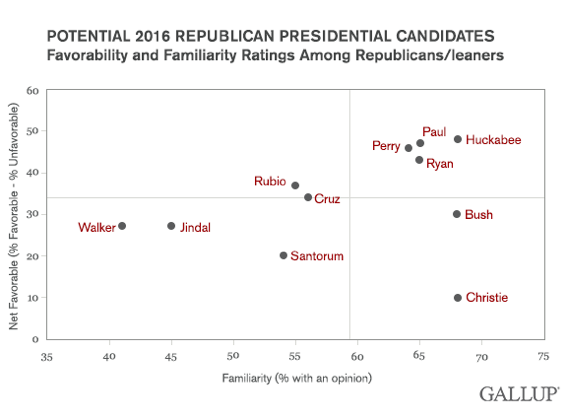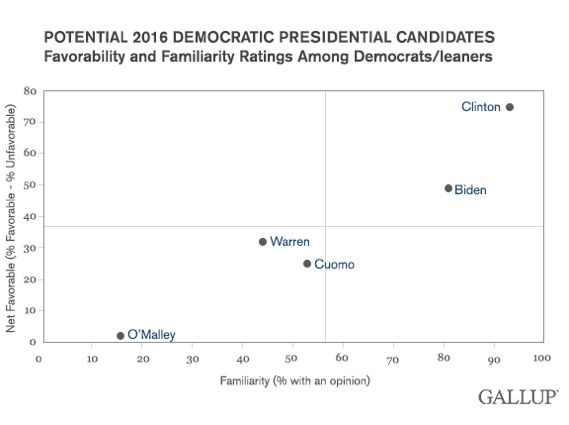
Another poll finds Americans wary of responsibility for the turmoil in Iraq. African-American turnout in the South could be critical to control of the Senate. And the pollster dialogue over polls without cell phone samples continues. This is HuffPollster for Friday, July 18, 2014.
MOST AMERICANS DON'T FEEL OBLIGATED TO ACT IN IRAQ - Pew: "As violence and chaos spreads in Iraq, the public is wary of U.S. involvement in the country. A 55% majority says the United States does not have a responsibility to do something about the violence in Iraq; 39% do see a responsibility to act….Those who have heard a lot about violence in Iraq are more likely than those who have heard little or nothing to see a U.S. responsibility to act. Still, just 44% of those who have heard a lot about the situation say the U.S. has a responsibility to do something about the violence in Iraq, compared with 35% who have heard less about this situation….The current survey finds that majorities across most demographic groups think the United States does not have a responsibility to act in Iraq. There are age differences in these opinions, however. People under 30, who are least likely to have heard about the violence in Iraq, are more divided...Among Republicans and Republican leaners, those who agree with the Tea Party (54%) are more likely than those who do not (42%) to say the United States has a responsibility to do something about violence in Iraq." [Pew Research]
REPUBLICANS ♥ HUCKABEE (AND A FEW OTHERS) - Frank Newport: "Four potential GOP candidates for president in 2016 stand above seven others as the best known and best liked among Republicans at this early juncture in the nominating process. Former Arkansas Gov. Mike Huckabee, Kentucky Sen. Rand Paul, Wisconsin Rep. Paul Ryan, and Texas Gov. Rick Perry are all familiar to more than 60% of Republicans and Republican-leaning independents and have net favorable ratings of +40 or better. Huckabee has slightly higher familiarity and net favorability than the other 10 potential Republican candidates tested….Less than 70% of Republicans and Republican leaners nationwide are familiar with any of the 11 potential GOP candidates tested, even though several actively campaigned for the Republican nomination in 2012, one was the 2012 vice presidential nominee, and others have been visible in the news in recent months. None of them has the same level of name recognition as Hillary Clinton or Joe Biden among all adults. This suggests that many Republicans have not yet turned their attention to the next presidential race." [Gallup]
Democrats really ♥ Clinton (others, not so much) - Art Swift: "Out of a field of five potential 2016 presidential candidates, only Hillary Clinton and Joe Biden are viewed favorably by a majority of Democrats and Democratic-leaning independents. The other possible contenders are less well-known to Democrats. In fact, nearly seven in 10 Democrats say they have never heard of Maryland Gov. Martin O'Malley....While speculation about the 2016 campaign may be premature, especially in advance of the November midterm elections, Democrats' have clear-cut opinions of two candidates: Clinton and Biden. Ninety-three percent of Democrats have an opinion of Clinton, who has been on the national stage for 22 years as secretary of state, as a U.S. senator from New York, and first lady. As for the vice president, 81% of Democrats have an opinion of Biden, who previously served as a U.S. senator from Delaware for 36 years and ran unsuccessfully for president in 1988 and 2008....Clinton and Biden enjoy high familiarity and high favorability ratings with Democrats and Democratic-leaning independents. By subtracting her unfavorable rating from her favorable rating, Clinton has a net favorable rating of +75, far higher than any other potential presidential candidate, including Republican candidates." [Gallup]
BLACK SOUTHERN VOTERS COULD 'PLAY A HISTORIC ROLE' - Nate Cohn: "Nearly five decades after the passage of the Voting Rights Act, black voters in the South are poised to play a pivotal role in this year’s midterm elections. If Democrats hold the Senate, they will do so because of Southern black voters....This year’s closest contests include North Carolina, Louisiana and Georgia. Black voters will most likely represent more than half of all Democratic voters in Louisiana and Georgia, and nearly half in North Carolina. Arkansas, another state with a large black population, is also among the competitive states....Democrats lamented low black turnout for decades, but Southern black turnout today rivals or occasionally exceeds that of white voters. That’s in part because black voters, for the first time, have largely been eligible to vote since they turned 18. They have therefore had as many opportunities as their white counterparts to be targeted by campaigns, mobilized by interest groups or motivated by political causes. Mr. Obama is part of the reason for higher black turnout, which surpassed white turnout nationally in the 2012 presidential election, according to the census. But black turnout had been increasing steadily, even before Mr. Obama sought the presidency. In 1998, unexpectedly high black turnout allowed Democrats to win a handful of contests in the Deep South; in 2002, Ms. Landrieu won a Senate runoff with a surge in black turnout." [NYTimes]
CONTINUING THE DISCUSSION ON POLLS WITHOUT CELL PHONE SAMPLES - Earlier this week, pollster Mark Mellman argued that the media should ignore polls that don't call cell phones, including those with online panels to reach cell phone users -- sparking sharp disagreement from some who fall into the latter category. His response to those comments:
I’m grateful for all the responses, though I’m not sure all the respondents were grateful for the original column.
Nonetheless, no one seemed to disagree with the basic argument that polls which ignore cell-only respondents are fundamentally flawed and therefore, presumably, not worthy of consideration by the press or anyone else.
In fact, that rules out-of-bounds a lot of polls, and not just robos. By the standards on which we apparently agree, for example, Atlanta’s WSB should end it relationship with Landmark Communications which, according to their methodology statement, cannot survey cell phones. Based on their methodology statements, Gravis Marketing, Impact, Mitchell and Harper Polling also make no effort to contact mobile only voters in their automated polls.
We Ask America says their polls are IVR, but call cell phones. They solicit cell phone only individuals to sign up on their web site. These would be the only cell phones they could sample by IVR and no one would argue they are representative.
Then are pollsters who just don’t say.
Most of those who responded to HuffPollster’s inquiries do make some effort to reach mobile-only respondents. In this context Doug Rivers, for whom I have enormous respect, accused me of falling prey to the ecological fallacy. I didn’t. Rather he was the victim of a different kind of fallacy—assuming everyone else is as smart as he is. Doug asserts “surveys from internet panels don’t randomly select respondents from full set of panelists and hope everything works. “ But alas, some do exactly that, or at least appear to. As HuffPollster reported, for example, Insider Advantage does not screen its internet and Facebook respondents for being cell only (or mainly).
Then there is the curious case of Rasmussen which seems to insist on being unclear. Their methodology statement says, “To reach those who have abandoned traditional landline telephones, Rasmussen Reports uses an online survey tool to interview randomly selected participants from a demographically diverse panel.” If they take only cell phone respondents from the panel why not say so?
Finally, even those using only cell-only members of internet panels bear the burden of proof. How do we know that cell-only participants in internet panels represent the cell-only population in demographic, or more importantly, in attitudinal terms? Some evidence suggests they don’t. Gallup researchers concluded “panel members who are cell phone-only are less racially and ethnically diverse, and are more likely to own their homes and to be married than typical cell phone-only adults.”
Have studies consistently demonstrated that those individuals who are mobile-only have the same views as the subset of mobile-only users who sign up for internet panels? If I’ve missed them forgive me, but I believe those employing that methodology have the responsibility to prove their approach works before it is granted general acceptance.
HUFFPOLLSTER VIA EMAIL! - You can receive this daily update every weekday via email! Just click here, enter your email address, and and click "sign up." That's all there is to it (and you can unsubscribe anytime).
FRIDAY'S 'OUTLIERS' - Links to the best of news at the intersection of polling, politics and political data:
-A plurality of Americans want infrastructure spending increased, but most aren't willing to pay higher gas taxes for it. [HuffPost]
-Huckabee, Paul, Ryan and Perry are the best known potential GOP candidates for 2016. [Gallup]
-Most Democrats think the number of people with health insurance has increased since last July, while most Republicans do not. [YouGov]
-Harry Enten finds that the political party most trusted to handle the most important issue tends to win the midterm election. [538]
-Matthew Dickinson offers a primer on midterm Senate forecast models. [Middlebury]
-Alex Bratty (R) sees a limited time window for Republicans with the youngest voters. [POS]
-A Republican poll finds a combined 38 percent of Americans in favor of giving asylum to at least some migrant children and families, while 33 percent say they should be given aid and then deported, and 22 percent that the border should be completely closed to them. [Vox Populi]
-American investors are more comfortable with marijuana and gun companies than investors in other countries. [Bloomberg]
-Christopher Ingraham hosts a round of #NameThatData. [WashPost]

